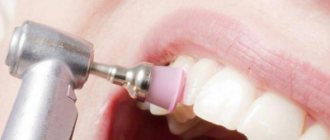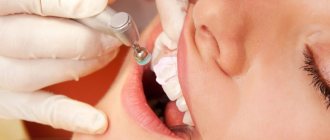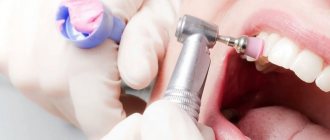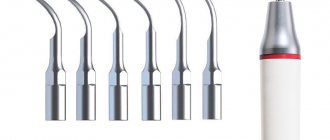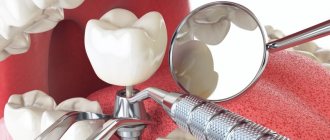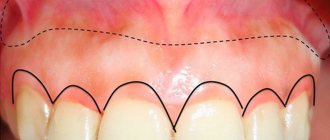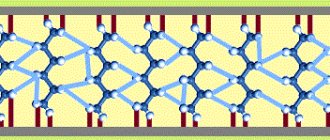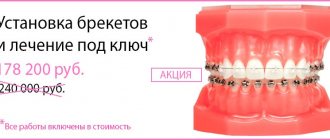Purpose of the mouth guard
What is this equipment for? Its main function is to protect the athlete’s teeth. This is a mandatory attribute for a boxer during a fight or sparring.
At the beginning of the development of boxing, mouthguards were not used. And it is not surprising that boxers then were often toothless. And in severe cases, tooth fragments penetrated the trachea, cut the mucous membrane, etc.
The mouth guard is also used in other fighting disciplines. And this is logical, because she:
- Effectively protects teeth and jaws.
- Reduces the risk of jaw fracture and concussion.
- Helps prevent tracheal obstruction. After all, when a tooth is knocked out, air does not flow.
- Helps reduce the number of lacerations in the oral cavity.
Today, elastic polymers are used to make mouthguards. When heated, they change their shape. Therefore, the mouthguard can be easily adjusted to an individual bite. This factor leads to a decrease in intracranial pressure and reduces the load on the cervical vertebrae.
It is very important to choose a mouth guard well.
According to statistics, a dental guard helps keep rows of teeth intact during a fight, even with knockouts to the chin.
Boxing through the eyes of a beginner. The first ten myths about boxing.
Introduction
I came to the boxing gym at a fairly mature age.
Mainly because I was afraid. Now, after some time, I can more or less objectively look at my fears and expectations and would thereby like to help those who are in the same situation as I was a year ago. So – the top ten myths about boxing.
A newcomer will definitely be beaten at the first training session
Newcomers are treated with tolerance. The coach also usually devotes more time to beginners. I haven't seen anything like this. The only exception that I can remember is the persistent desire of the newcomer himself to show that he is cooler and stronger than everyone else.
Perhaps the reasons for this myth are that if you are used to hitting hard, then an inexperienced opponent will find it too harsh.
Boxers are all brainwashed
On the one hand, yes, this is true to some extent. Starting from a more or less serious level, every training session a boxer gets hit in the head two or three times. Or even two or three dozen times. This cannot but have an impact.
On the other hand, I know more than one person involved in boxing who successfully works as a programmer or lawyer. That is, just where good memory and high “speed of thought” are required. What's the total? All brains are certainly not knocked out, but there is a risk of head injury. Although it is reduced by the presence of gloves, helmets and mouth guards. And it is almost zero if a person does not participate in serious competitions.
And there are generally exotic examples . On the contrary, when I started training, my headaches went away, which were caused by the consequences of a neck injury received by a bespectacled man many years ago in the most harmless situation, simultaneously with a concussion.
All boxers are stupid
Boxers are very calm, cautious and conservative people (on average, of course). And in the eyes of not very observant people they sometimes look limited. There are many counterexamples, including not only semi-mythical ancient sages and people who practiced boxing from time to time, but also our more or less famous contemporaries - Nabokov, Yavlinsky, Kobzon and so on.
On the other hand, any sport requires a lot of time and boxers read few books. And conversations in the locker room are devoted to girls, boxing equipment and events in the lives of famous boxers. And these conversations do not shine with polished logical arguments, beautiful philological constructions and quotes from newfangled writers. It's true.
Boxing is the best way to learn how to fight
Boxing is a quick way to learn how to fight. But boxing is a sport. Sports with restrictions: do not hit the back of the head or the back, do not kick, do not hit someone who has fallen. Boxing can be quite a sufficient argument in a fight. But you shouldn’t expect that by practicing boxing you will emerge victorious from all fights.
Boxing is ineffective because there are no kicks
. and usually continue - but kickboxing, Thai boxing, MMA, kyokyokshinkai...
The absence of kicks in boxing is both a minus and a plus. Other (shorter) distances. Other (higher) speeds. You don’t throw yourself away on a variety of equipment, but rather accumulate relatively little. But it is precisely this “little” that you end up being able to do well. The result is much more effective. Here I personally, being a discharger in army hand-to-hand combat, can judge first-hand.
Boxing is very dangerous.
The coach almost always controls what is happening in the gym. Protective equipment must be used. And few people work at full capacity.
Injuries in boxing cannot be avoided.
There will always be injuries. There is no contradiction here with the answer to the previous question. Amateur boxing in general is not very dangerous. Severe injuries are rare.
But minor injuries always happen. The goal of the training is to do the exercises technically, but at maximum speed and, ideally, also with maximum strength. With this approach to training, injuries will always occur.
After almost every workout, my face swells. Once a week they break my nose, lips, or give me a black eye. Once a month I manage to pull a shoulder, a hip, or knock out a thumb. After almost every workout in the evening I have a headache, which I got hit more than once the day before.
There will be injuries. But severe injuries, fortunately, are rare.
There are some boxers who always win
There is no such. Very quickly you understand that, by and large, any boxer can defeat any other (if you don’t take extremes into consideration, of course). And you yourself find yourself, both sometimes in the role of such a winner, and in the role of such a loser.
The result at a particular moment in time depends on many of its components. These include the consequences of injuries, overtraining, fatigue, the general condition of the body, food and the amount of water drunk the day before...
If who would win could always be determined quickly, boxing would not be such an interesting sport.
A beginner will not be able to oppose anything to a person who has been training for at least a year.
We come to the gym with our experience, muscles, skills and abilities. Almost every man has fought at least once in his life. Almost everyone has hit a punching bag at least once.
Sometimes a newcomer who comes for the first time already has significant advantages over most others. Great height, good physical fitness, good reaction, a certain attitude towards oneself and others - all this can turn out to be an advantage for a beginner literally right away. The fear was in vain.
Another thing is that in order to be able to take advantage of your advantage, you need to be able to do it. And a newcomer has much less chance than someone who has such experience.
It’s easy to choose a boxing club, they are everywhere.
More likely no than yes.
How to choose a boxing club is a topic for another discussion. There are many clubs as the popularity of boxing is growing. But among the clubs there are many different ones.
This is a topic for a separate discussion, but the general recommendations here are the same as for any other services. You should be treated professionally. And when working with you, they must pursue not only their own goals, but also those goals for which you came.
Varieties of mouth guards
The most common modification is single-jawed.
Its advantages:
- Wearing comfort.
- Practicality.
- Face protection from impacts.
- Does not create any obstruction to breathing.
The two-jaw version is considered more reliable. But it is very uncomfortable and makes breathing difficult. Therefore, it is used less often.
Professional such equipment is also a fixative. To develop its convenience, it is important to comply with the following criteria:
- The plates must be flexible and durable.
- There should be no pain when wearing it.
- It should have no taste or smell.
Signs of choosing the right mouth guard:
- Clear speech.
- Free breathing.
Guess the riddle:
The long-tailed horse brought us sweet porridge. The horse is waiting at the gate - Open your mouth wider. Show answer>>
She is long-tailed, black from the back. The belly is white, and the shoulders are rattling instead of speech. If he sees anyone, he’ll instantly think of a chirping, screaming sound. Show answer>>
A long guy against the wall, Bones and ribs are visible, His arms are thin like sticks, He looks funny and pitiful, Everyone wants to dress him, And coats, raincoats and jackets fall into his hands. Show answer>>
About production
Mouthguards produced at enterprises have specific parameters and shapes. These are cast products. There is no need to customize them. You can buy a cheap version, but it has a weak protective effect. You can pay a serious price for such cheapness.
Molded plates are held in high esteem by both beginners and professionals. During the production of caps, a special thermoplastic blank is used. If a product made from this material is placed in water at a temperature of +95 C, it softens like plasticine. It can be given the shape of a certain row of teeth. To do this, after heating, the workpiece is slightly cooled and pressed tightly against the teeth with your fingers. Once cooled, it is ready for use.
The best option is to create a mouth guard using a plaster cast. The procedure takes place in a dental office.
The same Ovechkin tooth. How did he lose it?
It was a long time ago.
It seems that Ovechkin has had a hole where one of his front teeth used to be since he was in the NHL. Toothless, he made the cover of ESPN magazine and a dozen smaller publications. Sculptors from Madame Tussauds and gamers who played NHL2K10 on Xbox remembered him as toothless. He starred in commercials toothless and came to his own wedding toothless. And this signature smile is as important a part of Alexander’s image as a strong click from the left throw-in circle. And the question of why he doesn’t insert at least temporary prostheses for himself has not been relevant for a long time.
This image of Ovechkin is a little over 10 years old. In his first two seasons in the NHL, problems with knocked out teeth passed him by, although he handed out 200 power moves and blocked shots on par with everyone else. At the World Championships in Moscow in 2007, Alexander was still smiling at all 32, although there were few reasons to rejoice, and even in September, in an interview for the official film of the league about young stars (released in the middle of winter), Ovechkin still had a whole jaw. But she did not remain in this state for long.
On the evening of October 5, 2007, after the first official game of the season with Atlanta, the number of his personal dentist appeared in Alexander’s telephone contact book. Throughout the game, he tormented the Thrashers defenders with hits, shots and dangerous passes, and Capitals head coach Glen Hanlon generally said that this was the best game of a sniper for Washington, although by that time Ovechkin had more than 100 goals in NHL.
“Atlanta” started up and began to take revenge. At the end of the second period, Ilya Kovalchuk played rudely against Alexander - then Washington’s opponents were still sent off for cross-checking, and after the break, Atlanta defender Steve McCarthy cracked Ovechkin in the face with the handle of his stick and beat him to the point of bleeding. The referees missed this point.
Ovechkin finished the match with a cotton swab under his lip, gave an assist, and after the game he received 14 stitches and had his upper incisor removed. “He was so excited he looked like a little baby who had his first milk out and was wondering what the Tooth Fairy would do,” wrote the Washington Post. “Oh, now I'm very hot. The girls will go crazy. “I’m like a warrior,” Ovi himself said.
At the next training session, he smiled a lot and willingly showed reporters what had happened to his jaw. The tooth remained in Atlanta.
Washington did not see any heroism in this story. “Ovechkin is one of probably 15 thousand hockey players who had their teeth knocked out. If you can't continue playing without a tooth, you'd better look for another sport," Hanlon laughed.
The 2007/08 season turned out to be the best of Ovechkin’s career. He scored 65 goals and 112 points, still his personal bests. Alexander became the most valuable, most goal-scoring and most productive hockey player of the season, and also led Washington to the playoffs for the first time. In January, he signed a $124 million contract, which was an NHL record at the time, and a few weeks later he scored four goals in a game in which his nose was broken. By the way, his nose was broken five times.
In the same season, Ovechkin won the World Championship for the first time and, it seems, never played so usefully for the national team again.
He has repeatedly said that he will get a tooth inserted when he retires from hockey, and this is not related to image or advertising obligations. This is better for your health, because repeated surgery will bring even greater destruction to the jaw. And her risk is huge, and for this it is not necessary to play as aggressively as Ovechkin.
It is enough to be at someone else's gate in the wrong place.
Or unsuccessfully place the stick in the center of the ice.
Or just sit on the bench for a second, like in the first game of the finals with Vegas.
And it’s even worse to be in the path of Ovechkin’s own throw. Islanders defenseman Jack Hillen lost five teeth and was told by a surgeon that he could have shot himself in the head with a gun with the same effect.
Price and purchase issues
How much does a mouth guard cost? Different prices. You should study the market. And then a couple of popular examples from top ones are offered. Red or black.
Thanks to it, teeth, lips, jaws and gums are much less likely to be injured. The product is created using innovative technologies. It is placed on the teeth meticulously accurately and very conveniently.
Its price tag is 990 rubles.
- "Everlast".
Single jaw modification. Boxers often use it in training. It can be used in other martial arts as well. The principle of its production is to heat it up and bite it. This is a method of adjusting the product to individual jaw parameters.
Its price is 300 rubles.
? I started going to boxing. This is the best thing I've ever done in my life
In the spring of 2015, a situation occurred in my life when I had to beat and knock out an opponent, but I hesitated and remained silent. I just didn’t know how to strike correctly, so I hesitated, got confused and looked rather pitiful.
At that moment, I promised myself that I would definitely sign up for boxing and would solve such issues purely on reflexes.
First, I prepared myself for training - with the help of gainers, protein and perseverance, I gained about 10 kilograms of muscle mass in six months. Then it seemed to me that in boxing you need to have the strongest body possible. Now I understand that I could have immediately stepped into the ring.
The main question is where to sign up for a person who has never practiced martial arts?
There are only three options.
1. Your own gym. Any decent gym has sections and personal training. A full-time boxing coach is also everywhere.
2. Halls for martial arts. There are plenty of them too, but there is a big disadvantage: as a rule, local coaches are focused on athletes. I've heard stories of beginners spitting out their lungs after their debut lessons. Nightmare.
3. Some guy from Avito. Coaches often market their time as a commodity. You come to some basement, pay 1000-1500 rubles, and then work on your paws for an hour. Not bad, but too steamy.
Naturally, I chose a gym where I had already purchased a membership a long time ago.
For 1.5 years I worked with two trainers. Both are very competent and adequate: they immediately realized that it was important for me to deliver a killer blow plus pump up my stamina.
Two spoilers: I seemed to have staged the kick, but I didn’t practice it on anyone other than the coaches. For some reason, conflicts in life have sharply decreased.
Now about why I come to boxing with such enthusiasm, as if after the final gong they would give me the eighth iPhone for free.
Burning calories
I'm one of those people who hates running. It’s even harder for me to understand marathon runners than vegans. Running aimlessly somewhere for the sake of burning calories is nonsense. Raping the treadmill is absolute hell. Jumping on an ellipse is a disaster.
This philosophy worked until I became overweight. Now you have a choice: either running on the track or boxing. Of course, I choose the second one. You simultaneously move, hit the target, and dodge blows - in short, you don’t get bored. On the track it's the other way around. For the first couple of kilometers you can still ignore the despondency, but for the next 30-40 minutes you run with one thought: “When will it all finally end?”
The first Google link says that an hour of boxing kills 630 calories. I work hard with pauses (4-5 minutes - round, 30-40 seconds - rest), so my net time is less than an hour. But even 550 calories is very good.
Of course, now experts in the field of fat burning will come to the comments, but I will say purely subjectively: after boxing training, I feel very refreshed and light. And after running - stupidly tired.
Conclusion: boxing brings more endorphins, and this is almost the main thing in amateur sports.
Two more bonuses
1. Coordination improves. For two winters in a row I have been balancing, but not falling, on the ice. Previously, it fell almost immediately. I associate this phenomenon specifically with boxing: there they teach you not only to hit, but also to control your body in order to put all your power into the blow. Accordingly, the skill of body control comes in handy in everyday situations.
2. Multi-discipline is being introduced. Any normal coach is great not only in boxing. I was given elbow strikes and low kicks - I like to practice them no less than the main arsenal (hooks, jabs, etc.).
You are growing in width
I'm not a doctor or a trainer, so I don't have solid evidence, but I'll use the availability heuristic.
For me and three of my friends, the following algorithm worked: you work hard in the gym, then you see stagnation in your results, then you go to boxing and start growing again.
As far as I understand, this effect is explained by a sharp change in the type of load.
As a result, the scruffy guys become pumped up, and the pumped up guys become healthy.
Plus, it works great on your shoulders, which after 3-4 months of boxing become elastic and sculpted.
